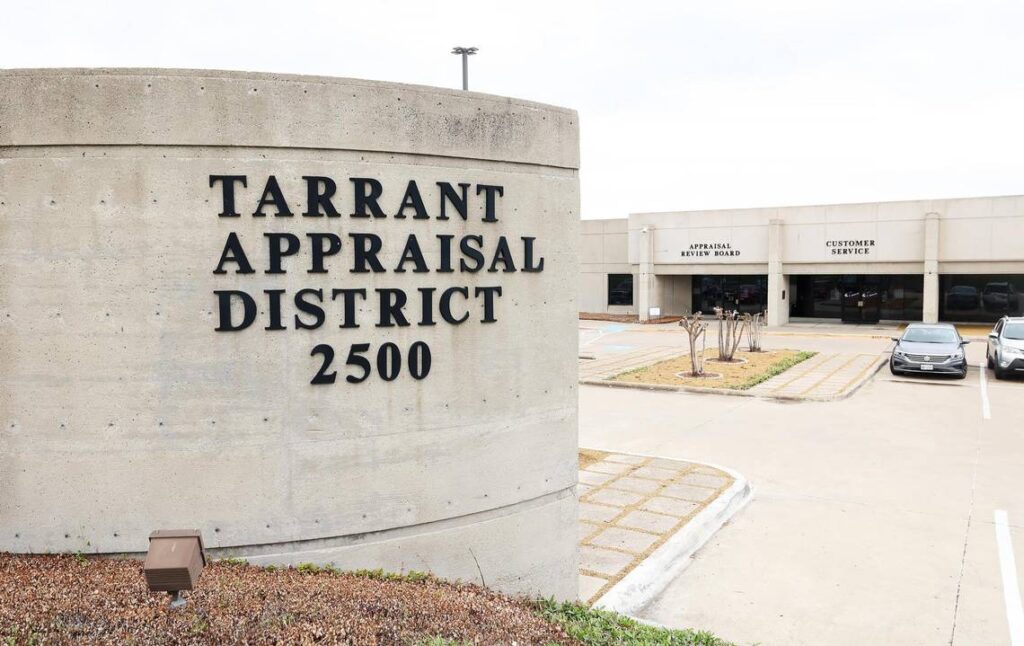
There is no question that Texas’ property tax system needs to change, and that cities and schools need to be more honest about raising our taxes.
The Tarrant Appraisal District directors are taking a bold step, but it’s in the wrong direction.
Their plan to change appraisals will make the system more unfair. Not less.
First of all, the board’s new plan to appraise most property biennially instead of annually means property owners in “hot” suburbs and neighborhoods will not pay their share every year to fund local government.
Instead, that money will have to come from the not-as-hot.
It’s Robin Hood, but in reverse.
Originally, the new directors wanted to appraise property triennially. That would have been even worse.
But there are much more serious problems with the plan the new TAD board passed 6-3 July 22 and may finalize as soon as Aug. 9.
The plan also sets a 5% “threshold” limit for raising a property’s listed market value without a special reappraisal. This is besides the 10% state cap on raising the actual appraised value, the law in Texas since 1997.
Let’s say that you bought a house in Tarrant County 12 years ago for the median price, $149,600.
Today, the median price is $359,945. But had the 5% threshold been law, your market value would be set at about $268,600.
In other words, you might get about a 25% discount.
But if your neighbors next door just arrived, they might not get a discount at all, because their home value was reset the year they moved in.
Instead, they would have to pay even more in taxes — just to make up the cost of your discount.
It’s not quite Robin Hood. But it robs newbie home buyers or landowners, and gives the money to those who have owned the same property for years.
Maybe that sounds great right now.
But if you find another house you like, then you wind up being the newbie paying more in taxes to make up for the neighbor who’s lived there for years. That’s not so great.
That’s one reason the last Texas Legislature considered and rejected a 5% cap on appraisal increases.
Experts told the Texas House that cap would make taxes more unequal, and that it would give the wealthy more money while taking money from low-income Texans.
According to the Texas Comptroller’s Office, it costs low-income Texans 7% of their income to pay their property taxes, but it only costs the wealthiest Texans 2% of their income.
There is no reason except raw politics to give wealthy homeowners or those “hot” neighborhoods another tax break.
It’s true that the Tarrant Appraisal District plan leaves room for a higher appraisal of a “hot” property. But that’s only if there’s proof justifying a higher market value.
There’s a lack of clarity around the terms “appraised value” and “market value” — there’s a difference — and that can cause confusion about the potential impact.
But the questions remain: How will TAD choose which properties are “hot”? Will it really have the resources to conduct special appraisals on them all? And will political favors or vendettas come into play?
This part of the plan should be discarded.
School officials also expressed concern about biennial reappraisals. Fast-growing school districts like Crowley and Eagle Mountain-Saginaw count on collecting more each year to pay off bond debt.
But school leaders knew this was coming.
They had a chance in the May 4 election to back candidates for three at-large seats on the nine-member appraisal district board of directors. They failed, and the next election is not until November 2026.
The three newly elected directors say they are carrying out their campaign promise to rein in property appraisals.
But nobody voted to make the system worse.
Do you have an opinion on this topic? Tell us!
We love to hear from Texans with opinions on the news — and to publish those views in the Opinion section.
• Letters should be no more than 150 words.
• Writers should submit letters only once every 30 days.
• Include your name, address (including city of residence), phone number and email address, so we can contact you if we have questions.
You can submit a letter to the editor two ways:
• Email letters@star-telegram.com (preferred).
• Fill out this online form.
Please note: Letters will be edited for style and clarity. Publication is not guaranteed. The best letters are focused on one topic.




